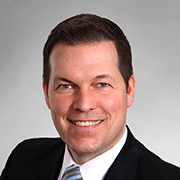May 25, 2022
Purchasers of units in recently converted condominium buildings need to take measures to ensure that they are staying current with their property tax obligations. The subject building will be taxed as a single-dwelling property until the conversion is accurately reflected in the City of Boston’s tax bills, which can take several months.
Late fees were suspended by most condominiums during the pandemic, and some continue to do so, but I receive many calls from boards and managers wondering if they can reinstate the late fees. Of course you can, but know your constituency.
Under the property tax structure established by statute, tax bills for a given fiscal year reflect the value and status of the property on January 1 prior to the fiscal year. When the use of the property changes – such as during a condominium conversion – those changes are not immediately reflected on the tax bills that are sent out by the City of Boston.
As a result, there will likely be a period of time before each individual unit owner gets their own tax bill. However, each unit owner is still responsible for a share of the property tax. The percentage interest of each unit owner – as reflected in the condominium’s master deed – is used to determine the amount of property taxes that each
Here’s an example of how a property tax bill would be shared:
• A six-unit building converts to condominium status on August 30, 2022.
• The building gets a quarterly property tax bill in November 2022 for $5,500.
• The Master Deed for the building lists out the common area percentages for the condominium units. The tax bill for each unit could be:
Unit |
Common Area Percentage | Tax Amount Unit Owner Needs to Pay |
|---|---|---|
| 1 |
10% |
$550 |
| 2 |
15% |
$825 |
| 3 |
15% |
$825 |
| 4 |
15% |
$825 |
| 5 |
20% |
$1,100 |
| 6 |
25% |
$1,375 |
To guard against a situation where a fellow unit owner does not pay his taxes, each unit owner should be sure to keep track of his or her payments, which will provide proof that the proportionate share of taxes were paid.
The City of Boston will bill most conversions during the 2022 calendar year in time for the first quarter of fiscal year 2024 that will begin on July 1, 2023. Here’s a timeline:
| Calendar Year of Conversion | Fiscal Year Where Conversion is Shown on First-Quarter Tax Bill |
|---|---|
| 2021 |
2023 |
| 2022 |
2024 |
| 2023 |
2025 |
When there is a particularly large condominium conversion, or there is an issue with recording the conversion, the City of Boston will send tax bills in the third quarter.
Questions concerning these issues should be directed to the Assessing Department Tax Data Administration unit at (617) 635-3783.


